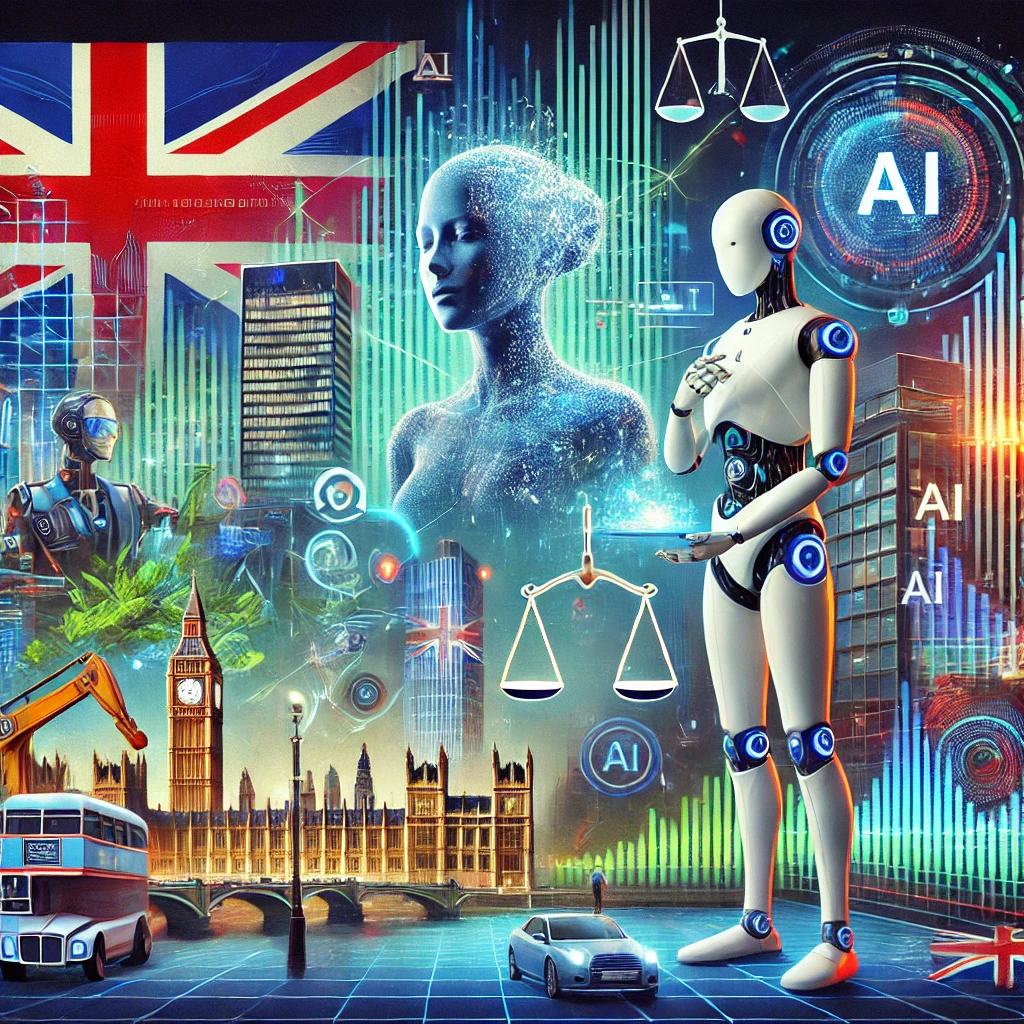
Artificial intelligence (AI) is revolutionizing industries worldwide, and British technology companies are at the forefront of this transformation. From pioneering new AI models to integrating AI into the creative industries, the UK is emerging as a global leader in artificial intelligence innovation. However, with these advancements come significant legal and ethical challenges that must be addressed.
The Rise of British AI
The UK has long been a hub for technological innovation, and AI is no exception. Companies like DeepMind, Graphcore, and Faculty AI are leading the charge in developing cutting-edge AI solutions. DeepMind, a subsidiary of Alphabet, has made groundbreaking progress in areas such as protein folding, gaming AI, and reinforcement learning. Meanwhile, Graphcore’s innovative AI chips are pushing the boundaries of machine learning efficiency, making AI applications more powerful and accessible.
Startups and established firms alike are leveraging AI to drive economic growth, create jobs, and enhance technological capabilities. The UK government has also recognized the importance of AI, investing heavily in research, education, and infrastructure to support continued advancements.
AI’s Impact on the Creative Industries
One of the most fascinating applications of AI in the UK is within the creative industries. From music composition to digital art and content creation, AI is enabling new forms of artistic expression and innovation.
- Music and Film: Companies like Jukedeck (acquired by ByteDance) have developed AI-generated music tools, allowing artists and creators to produce unique soundtracks effortlessly. AI-powered editing tools are also transforming the film industry, helping filmmakers streamline post-production processes and create high-quality content.
- Gaming: AI-driven procedural generation is reshaping the gaming landscape, with companies like Ninja Theory using AI for advanced character animations and storytelling.
- Publishing and Journalism: AI tools are increasingly being used in newsrooms to assist with data analysis, automated reporting, and content generation, helping journalists focus on investigative work.
While these developments enhance efficiency and creativity, they also raise concerns about the role of human artists and the authenticity of AI-generated content.
Legal and Ethical Challenges in AI
As AI becomes more integrated into various sectors, it introduces a range of legal and ethical issues that require careful consideration.
Intellectual Property (IP) Rights
One of the most pressing legal challenges is determining ownership of AI-generated content. Should AI-generated artwork, music, or written content be attributed to the AI’s developer, the user, or the AI itself? Current copyright laws do not fully address these scenarios, creating ambiguity for content creators and businesses alike.
Bias and Fairness
AI systems are only as unbiased as the data they are trained on. If training data contains inherent biases, AI models can perpetuate and amplify them, leading to unfair outcomes in areas like hiring, lending, and law enforcement. British companies are actively working on improving AI transparency and developing strategies to mitigate bias in AI algorithms.
Privacy and Data Security
AI relies heavily on vast amounts of data, raising concerns about user privacy and data protection. The UK’s General Data Protection Regulation (GDPR) plays a crucial role in ensuring companies handle AI-generated data responsibly. However, continuous advancements in AI require ongoing legal updates to keep pace with evolving technologies.
AI Accountability
Determining responsibility when AI systems fail or cause harm is another significant ethical dilemma. If an AI-powered medical diagnostic tool makes an incorrect diagnosis, who is liable—the software developer, the healthcare provider, or the AI itself? The UK government is exploring regulatory frameworks to establish clear guidelines for AI accountability.
The Future of AI in the UK
Despite these challenges, British technology companies continue to drive AI innovation. With strong governmental support, a thriving startup ecosystem, and world-class academic institutions, the UK is well-positioned to lead the next wave of AI advancements.
To ensure AI remains a force for good, British companies and regulators must work together to establish ethical guidelines, protect intellectual property, and promote responsible AI development. By addressing these challenges head-on, the UK can maintain its status as a global leader in artificial intelligence and shape the future of this transformative technology.